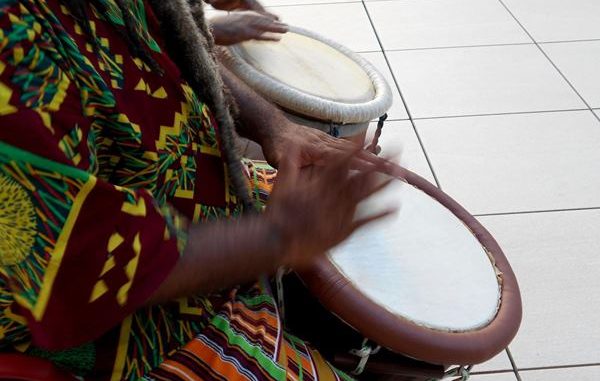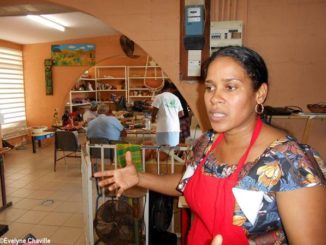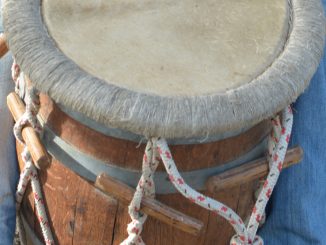
From July 9 to 15, the 31st edition of the “Gwoka Festival” took place in Sainte-Anne. The guests of honour who were expected to arrive from Cuba could not be there. The official explanation of the organization was, since the crash of the Cubana de Aviación plane that occurred on May 18, the flights of this Cuban company could not land in Guadeloupe. To bring these Cuban guests, it would have been necessary to plan a new, longer and more expensive route.
For some time now, we heard about the financial difficulties facing the “Gwoka Festival”. This year, the organization had to require funds from donors.
We are entitled to wonder about this situation because this is one or the oldest musical festival in Guadeloupe that is still alive. The “Gwoka Festival” was before an event that no one wanted to miss… Every July, at the beginning of the school holidays, the crowd made up of locals but also holidaymakers and tourists flocked to the town of Sainte-Anne to see the various bands that performed on stage and recharge its batteries. It must be noted that, for some years, although the festival continues and reaches more than thirty years of existence, its fame little by little fades; in short, this festival ages badly and now it goes almost unnoticed in the media…
However, on November 26, 2014, gwoka (music, song and dance) was registered on the intangible cultural heritage list of the United Nations Educational, Scientific and Cultural Organization (UNESCO). The instigators of this international recognition had promised so much benefits for this ancestral art…
So, we can wonder why today, the organization is almost passing the hat to finance a festival that represents a part of our heritage when many people had understood that this registration protected gwoka at every level.
Why the Guadeloupean people have to pay again a festival they already paid through the public grant given to the organization? This year, they wanted to do a “lyannaj” (cooperation) with Cuba but they should look at what is happening on the largest island in the Caribbean and they would see that the Cubans sell to foreign countries their cultural events through their agency Paradiso. Cuba asked for the registration of tumba (2008) and rumba (2016) on the intangible cultural heritage list of Unesco and it’s not to impress people or just to have fun…
Certainly, gwoka has become much more popular in recent years in Guadeloupe but we cannot attribute this movement to its recognition by Unesco; it is only the result of an awareness of the Guadeloupeans about their cultural wealth.
Gwoka, “mizik a vyé nèg” (music for bad Negroes) played in the street and the léwòz, had already come into the living rooms and bedrooms of the Guadeloupean people, was it necessary, almost four years ago, to get it also into the function room of Unesco in Paris?
A famous tanbouyé who refused to sign the petition for this recognition had told us: “we do not need Unesco to recognize gwoka. Before Unesco, there are people who fought to promote this music”. Was he right?
In 2016, we wanted to interview one of the protagonists of this recognition that we met not far from the Law Courts in Pointe-à-Pitre but he was “too busy” to answer a small magazine like Kariculture.net… A few days later, we saw him on television, he was spreading the good word of gwoka to Montauban in France…
The answer is easy: for the moment, in Guadeloupe, there is no benefit for gwoka after its recognition by Unesco.



